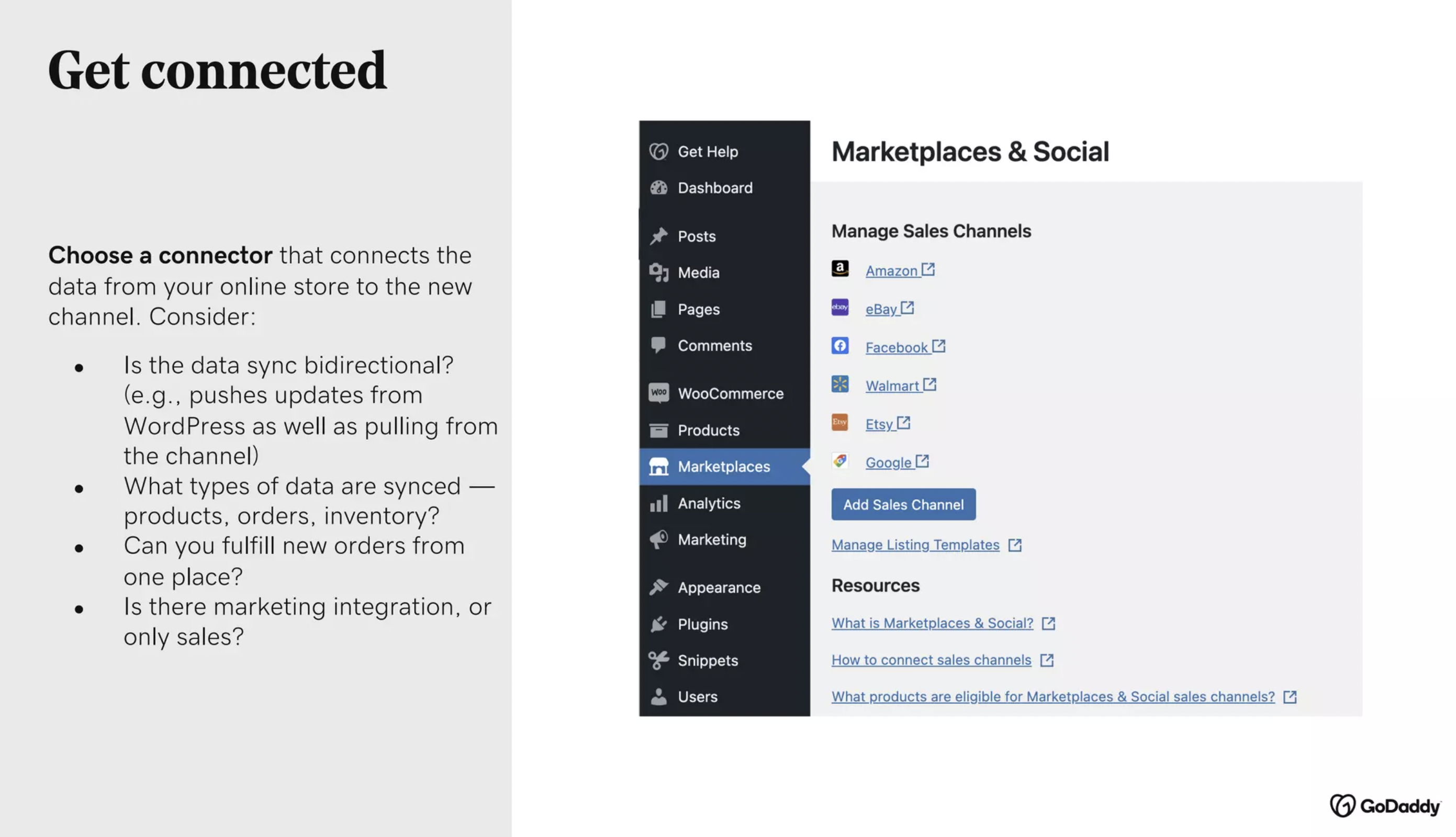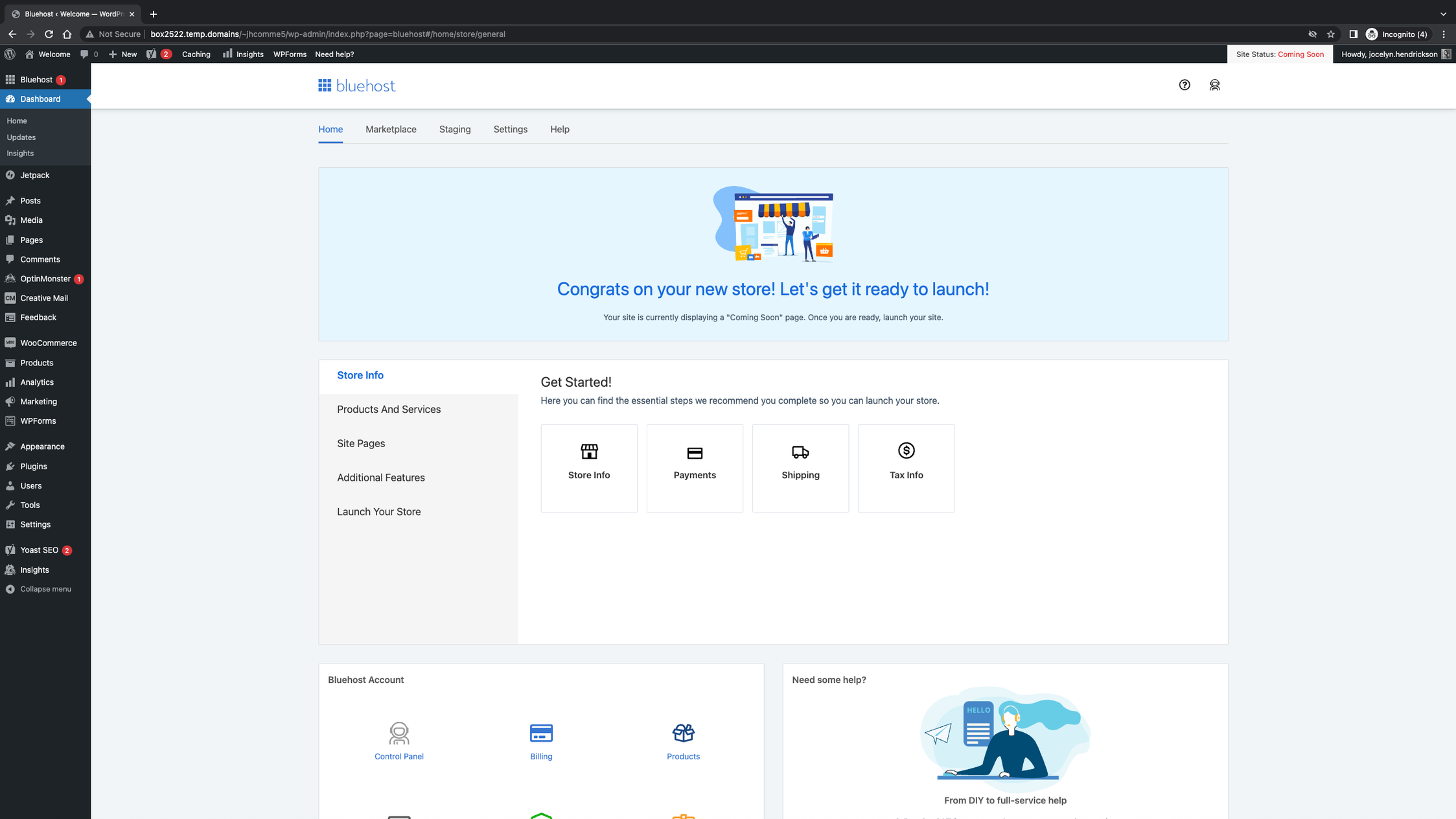WooSesh kicked off this week with a keynote session from WooCommerce CEO Paul Maiorana, who gave an overview of the current state of the ecosystem. More than 3.4 million websites use WooCommerce, according to Builtwith, including 25% of the top million online stores. It is by far the most popular solution among WordPress sites with e-commerce, capturing 93% of the market share.
Maiorana covered some industry-wide trends taking shape in 2023. WooCommerce merchants are uncertain about the economy and while some are optimistic, others do not see it improving soon. Although growth has slowed since the pandemic-fueled rapid acceleration towards e-commerce in 2021, Maiorana said revenues are projected to gain steadily through 2025.
WooCommerce core is entering a transformative time, as the new admin has been fully merged and Cart and Checkout blocks are now part of core (in beta). The plugin is becoming more block friendly with more than 40 blocks available now. WooCommerce has seen a 319% increase in the usage of block themes and is aiming to have full out-of-the-box compatibility with any block-based theme.
The Market for Hosted WooCommerce Products Is Heating Up
One of the biggest announcements from the event was that WooCommerce is developing its own hosted, turnkey solution in collaboration with hosting partners. WordPress.com will be the first to pilot the product in February 2023. Maiorana said the goal of the solution is to improve onboarding and retention with the following :
- WooCommerce pre-installed, activated, and hosted
- A pre-packaged set of essential plugins
- Simplified onboarding that works with partners’ systems to improve conversion
- Competitive monthly price to reduce churn
- Co-marketing and revenue share with hosts
WooCommerce’s hosted solution will be in direct competition with other hosts that have recently launched their own products.
In November 2021, GoDaddy acquired Pagely with the intent to deploy a new SaaS WooCommerce product. Pagely was paired with previous 2020 acquisitions of Poynt, a payment processor, and SkyVerge, a popular WooCommerce plugin development company, to create an integrated solution. Last month, GoDaddy launched an open access preview of Managed WooCommerce Stores to US-based customers.
GoDaddy’s solution boasts the ability to sync across marketplaces, including Amazon, eBay, Google, Walmart, Etsy, and YouTube, with a single dashboard managing payment processing, marketing, shipping, and inventory. It is integrated with GoDaddy Payments for both online and in-person transactions, which incur a transaction fee of 2.3% + 30¢. The hosted WooCommerce preview plans range from $99.99/month – $249.99/month.

At WooSesh today, Beka Rice, Senior Director of Product Management at GoDaddy, gave an overview of multichannel and omnichannel sales for e-commerce merchants during her presentation. Enabling multichannel store management seems to be one of the main selling points of GoDaddy’s offering.

Bluehost is another recent contender in the managed WooCommerce hosting space, having launched its product last month. In March, Newfold Digital, Bluehost’s parent company, acquired YITH, a WordPress plugin company with more than 100 WooCommerce extensions. Bluehost’s managed WooCommerce packages include a curated set of YITH plugins to help merchants extend their stores to offer gift cards, bookings and appointments, wishlists, product filtering, and more.
Bluehost offers two plans. For the first year, when billed yearly, customers pay $9.95/month for a simple store or $12.95/month for selling across various marketplaces. Customers on the more expensive plan have the option to manage product inventory across Etsy, Amazon and eBay from a consolidated dashboard via Ecomdash. At the budget end of the WooCommerce hosting spectrum, Bluehost’s offering has an emphasis on creating a user-friendly, guided onboarding experience.

Bluehost conducted an internal research study last year and found that its small business customers were looking for solutions that would allow them to sell online, but many of them are first-time website creators. The company created this new WooCommerce offering to eliminate the hassle of navigating themes and the many plugins required to launch a store.
Bluehost uses YITH’s Wonder theme as the stores starting theme, which we reviewed in August.
“Our theme is built for WordPress, utilizes the block structure that modern WordPress websites are beginning to adopt (one of the early block-based
WooCommerce block themes) and also includes three full-page patterns for different homepage layouts and designs,” Newfold Digital SVP of Digital Presence and Commerce Jason Cross said.
“This not only provides users with a modern looking store, but also allows them to continue to customize it with ease in the future. YITH Wonder comes with six different style variations that make it easy to customize the accent color combinations and typography for the site.”
Bluehost’s offering is aimed at catering to the merchants who will be building the stores themselves. The company has not created its own payments solution but connects to popular payment providers such as PayPal and Stripe and offers cash on delivery and in-store pickup options.
WooCommerce is at the start of its journey towards launching a hosted solution but the company also plays a different role in the ecosystem as the maintainer of the core software. In an interview with the Tavern after his keynote, Maiorana said the vast majority (+90%) of ongoing WooCommerce core development is done by the WooCommerce team at Automattic.
“One important difference is that we are really focused on the WooCommerce ecosystem – including the thousands of web hosts that help support and drive WordPress and Woo adoption across the globe – as our most important ‘customer,’” he said.
“And what we’re hearing from these customers is that it is challenging to compete with the simplicity offered by proprietary, turnkey e-commerce solutions. At the same time, many web hosts don’t have the capabilities to address things like onboarding, conversion, and retention holistically – they need our help to compete and win.”
Many of the major hosting companies that serve WordPress customers, like WP Engine, GoDaddy, and Bluehost have already developed their own hosted WooCommerce solutions, although there are many smaller companies that do not offer curated plugins, themes, and friendly onboarding that may be more open to partnering with the makers of WooCommerce.
“We’re also working with a ‘core first’ perspective,” Maiorana said. “That means that our efforts here will help drive improvements directly back into the core WooCommerce experience and across other, related extensions. We want to take everything we learn and any benefits we discover back to every WooCommerce user.
“We think the winning strategy for the WooCommerce community is not to split efforts or keep these innovations to ourselves, but instead work together to make WooCommerce better for everyone.”
Maiorana could not share any more details of the solution they are developing, but with more than 800 products in the WooCommerce.com marketplace, the company has the ability to offer a compelling deal on extensions for those who host with them. WooCommerce is also currently beta testing WooPay, a single-click cross-site checkout experience that uses WooCommerce Payments. Integrating WooPay with WooCommerce’s network of hosting customers may also give the new checkout (and WooCommerce Payments) a major boost.
With WooCommerce soon to be in the running with its solution hosted on WordPress.com, the competition around managed e-commerce hosting is starting to heat up. It may no longer be enough for hosting companies to simply offer WooCommerce and Storefront pre-installed. Although the largest hosting companies have been acquiring WooCommerce plugin shops in order to create compelling packages of store functionality, there’s room for diverse offerings in a wide range of pricing tiers, as WooCommerce adoption continues to grow.
WordPress.com already has an eCommerce plan. How will this be different?